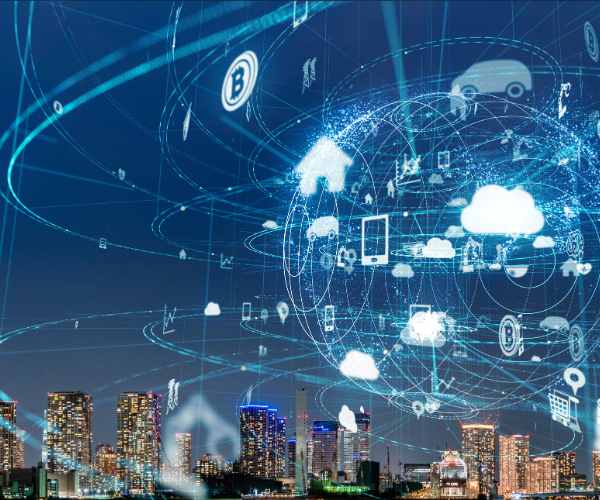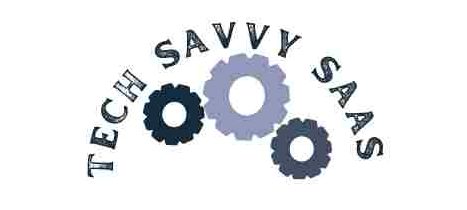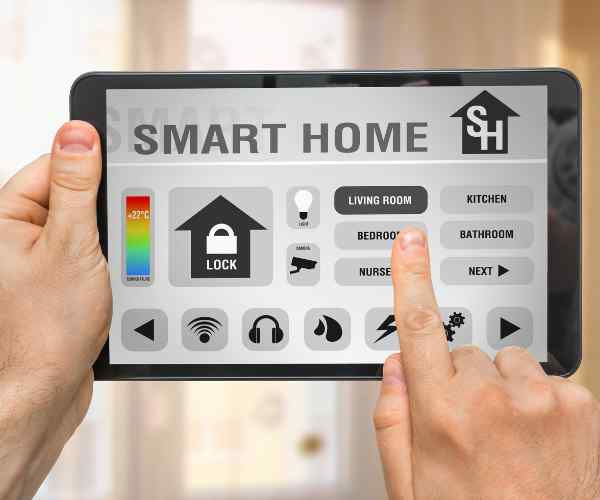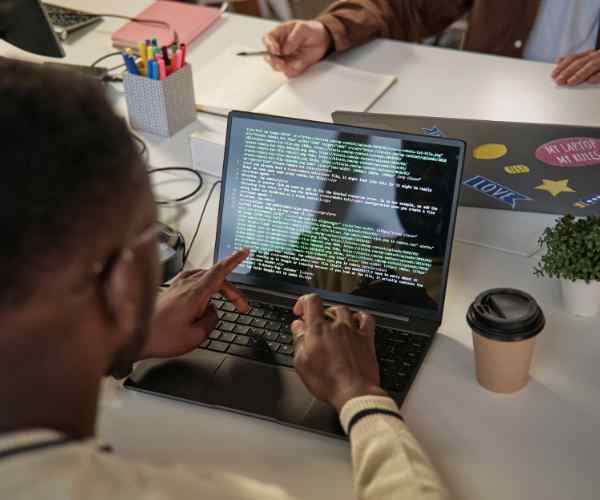Smart cities are increasingly gaining prominence as urban areas grapple with the challenges of the 21st century. At the heart of this phenomenon is the pressing need for environmental sustainability, a concept that has become central to modern urban planning. A smart city is not merely a technological utopia but a strategic response to the critical issues facing our communities. This introductory section delves into the crucial intersection of smart cities and environmental sustainability, unraveling the symbiotic relationship between the two.
A smart city is a dynamic and adaptive urban environment that leverages cutting-edge technology to enhance the quality of life for its inhabitants. More than just a collection of smart gadgets, a smart city is characterized by an integrated and interconnected infrastructure that optimizes efficiency, resource utilization, and overall well-being.
Sustainable development forms the foundation of smart city initiatives. It is a holistic approach that seeks to meet the needs of the present without compromising the ability of future generations to meet their own needs. In the context of smart cities, sustainability extends beyond environmental concerns to encompass economic growth, social equity, and technological advancement.

The Role of Green Technologies
Central to the evolution of smart cities is the pivotal role played by green technologies. These technologies are instrumental in mitigating some of the most pressing challenges faced by urban areas worldwide.
Addressing climate change
One of the foremost challenges tackled by green technologies in smart cities is climate change. The integration of sustainable energy sources, reduction of carbon emissions, and eco-friendly urban planning are crucial components. By adopting renewable energy solutions and minimizing the environmental impact of urban activities, smart cities aim to become resilient hubs in the face of climate-related uncertainties.
Tackling energy consumption
Another critical issue is the ever-increasing energy consumption in urban areas. Smart cities employ innovative solutions such as smart grids, energy-efficient buildings, and intelligent transportation systems to optimize energy usage. This not only reduces the strain on traditional energy sources but also contributes to the long-term sustainability of the urban environment.
Energy: Examining the Role of Energy in Smart City Development
Energy is the lifeblood of any thriving urban environment. In the context of smart city development, the examination of energy takes center stage. This section delves into the various facets of energy consumption, conservation, and the deployment of sustainable energy sources within smart cities. By understanding the intricacies of energy dynamics, cities can strategically shape their development to be both technologically advanced and environmentally responsible.
Green IoT: Discussing the Significance of the Internet of Things (IoT) in Urban Planning
The Internet of Things (IoT) is a revolutionary force in the realm of urban planning. This section navigates through the profound impact of Green IoT on how cities are designed, managed, and experienced. From smart infrastructure to real-time data analytics, the integration of IoT technologies ensures that cities operate with unprecedented efficiency. By examining the nuances of green IoT, we unravel the layers of innovation that transform urban spaces into interconnected hubs of sustainable living.
Waste Management Solutions: Exploring Innovative Waste Management Technologies
In the pursuit of creating truly sustainable smart cities, waste management emerges as a critical frontier. This section explores the realm of innovative waste management technologies that redefine how urban areas handle their refuse. From smart bins to recycling automation, the adoption of advanced waste management solutions not only reduces environmental impact but also paves the way for cleaner, healthier cities. Understanding these technologies is integral to creating urban environments that prioritize both technological advancement and ecological well-being.
Data-Driven Technologies: Understanding the Use of Big Data and Artificial Intelligence for Efficient City Management
At the heart of smart city management lies the power of data. This section delves into the transformative potential of big data and artificial intelligence in shaping the efficiency and responsiveness of urban systems. From predictive analytics to automated decision-making, the utilization of data-driven technologies enhances city management, resource allocation, and service delivery. Unraveling the complexities of these technologies is crucial for cities aiming to stay at the forefront of innovation while ensuring sustainable and informed governance.
Environmental Sustainability: Assessing the Impact of Green Technology on Environmental Sustainability
Environmental sustainability is the overarching goal that unites all aspects of green technology in smart city development. This section assesses the impact of these technologies on the broader environmental landscape. From reducing carbon footprints to preserving biodiversity, the integration of green technologies seeks to create urban environments that coexist harmoniously with the natural world. By understanding the implications of these efforts, cities can strive toward a future where progress aligns seamlessly with ecological balance.
Wireless Sensor Networks: Analyzing the Importance of Advanced Technologies Like Wireless Sensor Networks in Smart Cities
Advanced technologies, such as wireless sensor networks, play a pivotal role in shaping the connectivity and intelligence of smart cities. This section analyzes the importance of these networks in creating a seamlessly interconnected urban ecosystem. From smart transportation to environmental monitoring, the deployment of wireless sensor networks enhances the overall efficiency and effectiveness of city systems. Understanding the nuances of these advanced technologies is essential for cities aspiring to be at the forefront of the smart city revolution.
Smart City Development
As cities embark on the journey toward becoming smart cities, strategic implementation of key technologies and practices becomes paramount. These quick tips serve as essential guidelines, highlighting the pivotal aspects that contribute to the success of smart city initiatives.
Implementing energy-efficient systems
Implementing energy-efficient systems is a cornerstone in the quest for sustainable urban development. By embracing technologies that optimize energy consumption, cities can significantly reduce their carbon footprint and dependence on non-renewable energy sources. This not only benefits the environment but also enhances the long-term viability and resilience of the city’s energy infrastructure.
Utilizing green IoT technologies
The Internet of Things (IoT) emerges as a game-changer in the realm of smart city management. Utilizing green IoT technologies facilitates real-time monitoring and management of urban infrastructure. From smart grids that optimize energy distribution to intelligent transportation systems that alleviate traffic congestion, green IoT fosters a connected ecosystem that enhances overall efficiency and responsiveness.
Efficient waste management solutions
Efficient waste management is a linchpin for creating cleaner, healthier cities. Efficient waste management solutions not only reduce the environmental impact of urban activities but also contribute to the aesthetic and sanitary aspects of the cityscape. Technologies such as smart waste bins, automated recycling processes, and waste-to-energy systems play a pivotal role in achieving sustainable waste management practices.
Prioritizing data-driven technologies
In the realm of urban planning, information is power. Prioritizing data-driven technologies equips city planners and administrators with the insights needed for informed decision-making. Big data analytics and artificial intelligence enable a proactive approach to city management, allowing for predictive modeling, resource optimization, and the creation of responsive and resilient urban environments.
Establishing reliable communication networks
At the core of any successful smart city initiative is the establishment of robust and reliable communication networks. Establishing reliable communication networks ensures seamless connectivity between various city systems, enabling real-time data exchange and coordination. From smart traffic management to emergency response systems, the efficiency and effectiveness of smart city solutions hinge on the strength and resilience of communication infrastructure.
FAQs
How Does Green Technology Contribute to Energy Efficiency in Smart Cities?
In the pursuit of energy efficiency within smart cities, the integration of green technology plays a pivotal role. This involves exploring technologies that go beyond conventional energy sources, emphasizing optimization in energy consumption, and promoting the utilization of renewable energy. From smart grids that intelligently distribute energy to energy-efficient buildings and sustainable urban planning, green technology becomes the bedrock for minimizing energy waste and fostering a more environmentally responsible energy landscape.
What role does green IoT play in the development of smart cities?
Green IoT stands at the forefront of transforming the landscape of smart city development. This question delves into understanding how interconnected devices, facilitated by the Internet of Things, contribute to the enhancement of urban infrastructure and services. From smart traffic management and waste monitoring to intelligent lighting systems, Green IoT creates a seamlessly connected urban environment that not only improves efficiency but also lays the foundation for a more sustainable and responsive city.
How Can Waste Management Solutions Be Integrated into Smart City Planning?
Efficient waste management solutions are integral to the fabric of smart city planning. This question delves into examining innovative approaches that go beyond traditional waste disposal methods. Smart waste bins, automated recycling processes, and waste-to-energy technologies are explored, showcasing how waste management becomes an essential component in creating a cleaner, healthier, and more sustainable urban environment.
Why is data analysis important for smart city management?
At the heart of smart city management lies the power of data. This question discusses the importance of data analysis, including big data analytics and artificial intelligence, in enhancing decision-making processes. By analyzing vast amounts of data generated by various city systems, administrators gain valuable insights into trends, patterns, and potential issues. This data-driven approach enables proactive and informed decision-making, contributing to the overall efficiency and responsiveness of smart city governance.
How Do Wireless Sensor Networks Impact the Success of Smart City Initiatives?
Wireless sensor networks emerge as a technological backbone for the success of smart city initiatives. This question explores the significance of these advanced technologies in creating a seamlessly interconnected urban ecosystem. From smart transportation systems and environmental monitoring to public safety applications, the deployment of wireless sensor networks ensures real-time data exchange and coordination. Understanding their impact is crucial for cities aspiring to leverage advanced technologies for the seamless operation and success of their smart city initiatives.
Reviewing Current Research on Green Technology Applications in Urban Development
The dynamic landscape of green technology within the realm of smart cities is shaped by ongoing research and development. This section delves into the current state of research, exploring the diverse applications of green technology in urban development. From sustainable energy solutions to innovative waste management techniques, a comprehensive review provides insights into the latest advancements, shedding light on the trajectory of green technology integration in shaping the future of smart cities.
Highlighting Key Findings from Conference Proceedings and International Conferences
The pulse of innovation beats vibrantly in the realm of smart cities and green technology conferences. This segment highlights key findings emanating from conference proceedings and international gatherings dedicated to the intersection of technology and urban development. By distilling insights from these forums, we gain a deeper understanding of the cutting-edge technologies, trends, and best practices that are driving progress in the field. This comprehensive overview serves as a beacon, guiding the integration of groundbreaking ideas into the practical landscape of smart city initiatives.
Analyzing Challenges and Potential Solutions Identified by Researchers in Big Data Technologies and Cloud Computing
The challenges faced by smart cities in harnessing the full potential of green technology often intersect with the realms of big data technologies and cloud computing. This section meticulously analyzes the challenges identified by researchers, ranging from data security concerns to the scalability of cloud-based solutions. Simultaneously, it explores the potential solutions proposed by thought leaders in the field. By navigating the intricate landscape of big data and cloud computing challenges, cities can pave the way for more robust and resilient smart city infrastructures, ensuring the seamless integration of green technologies.
Showcasing Real-World Examples of Cities Successfully Implementing Green Technologies
In the ever-evolving landscape of urban development, certain cities stand out as pioneers in successfully implementing green technologies. This section provides an in-depth exploration of these case studies, shedding light on the innovative approaches adopted by cities to integrate sustainability into their core infrastructure. From renewable energy initiatives to smart waste management systems, these real-world examples serve as beacons, illustrating the tangible impact of green technologies on shaping the trajectory of urban development.
Discussing the Outcomes and Benefits of Implementations
The success stories of cities embracing green technologies go beyond the theoretical realm, translating into tangible outcomes and benefits. This segment delves into the specific outcomes and benefits realized by cities that have wholeheartedly embraced sustainable urban practices. The discussion encompasses aspects such as economic growth stimulated by the green technology sector, improvements in the quality of life for inhabitants, and the overall positive impact on the urban environment. By dissecting these case studies, we gain valuable insights into the transformative power of green technologies in creating thriving, resilient, and sustainable urban ecosystems.
Conclusion
In conclusion, the journey through the impacts of green technology on smart cities underscores its indispensable role in shaping the urban landscapes of tomorrow. This blog post has traversed through key aspects, from defining smart cities and exploring green technology to examining real-world case studies of successful implementation. As we wrap up this exploration, it is crucial to reiterate the pivotal role that green technology plays in not only enhancing the efficiency of urban systems but also in championing the cause of environmental sustainability.
The integration of green technologies is not just a technological evolution; it is a paradigm shift that aligns urban development with the principles of sustainability. The success stories showcased in the case studies highlight how green technology serves as the backbone for cities striving to achieve a delicate balance between progress and ecological harmony. The critical role of green technology cannot be overstated in the pursuit of building smarter, more resilient, and environmentally conscious urban environments.
While we celebrate the strides made by cities in implementing green technologies, the journey is far from over. The conclusion of this blog post serves as a call to action, encouraging continued research and innovation. The future of smart cities relies on the continuous exploration of new technologies, the refinement of existing solutions, and the development of novel approaches to urban challenges. By fostering a culture of innovation, cities can propel themselves toward a future where digital transformation and sustainable development coalesce seamlessly.
More Post






